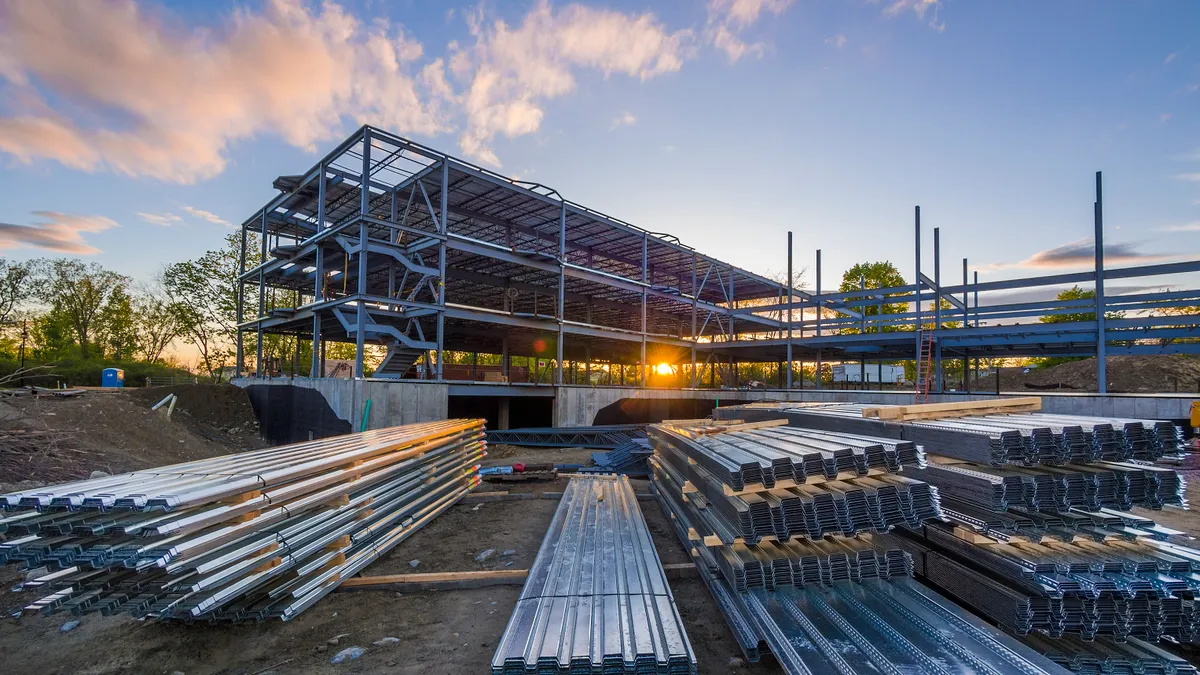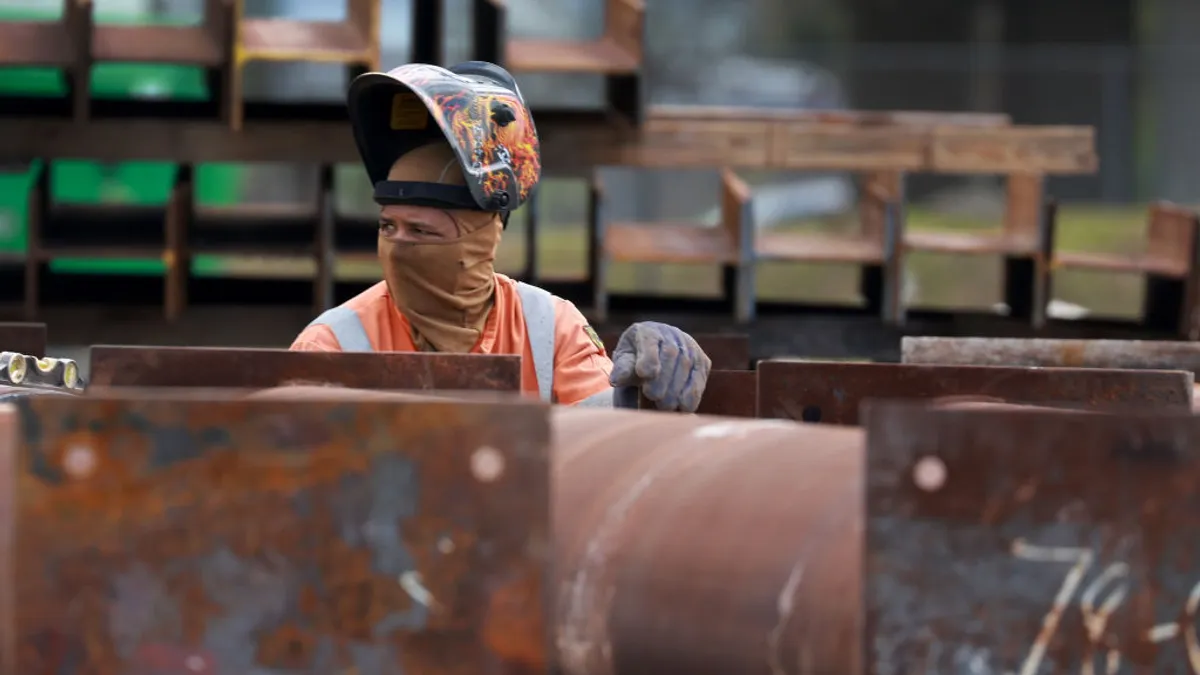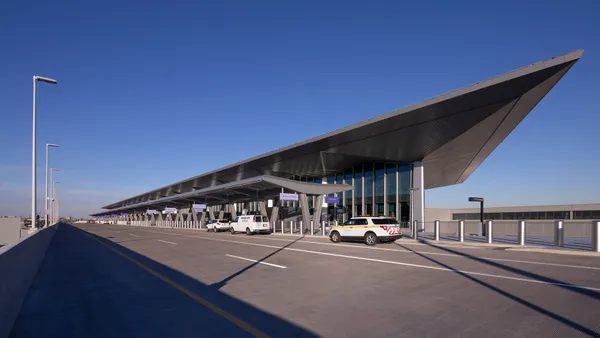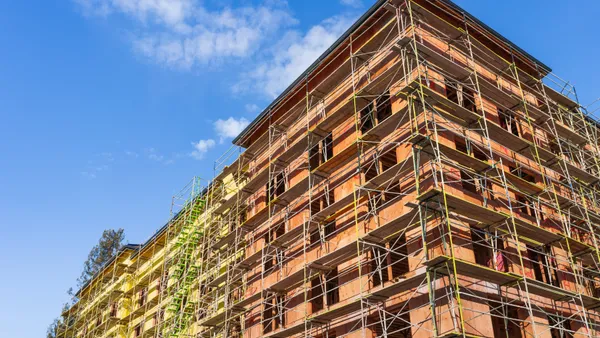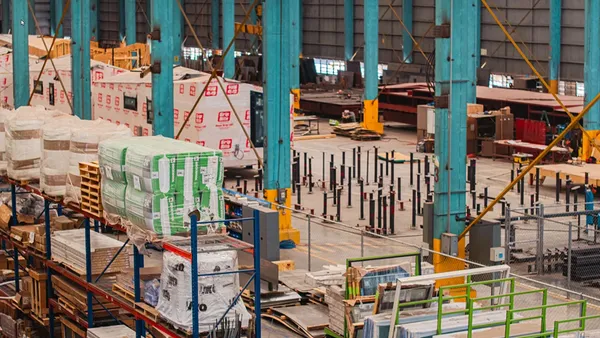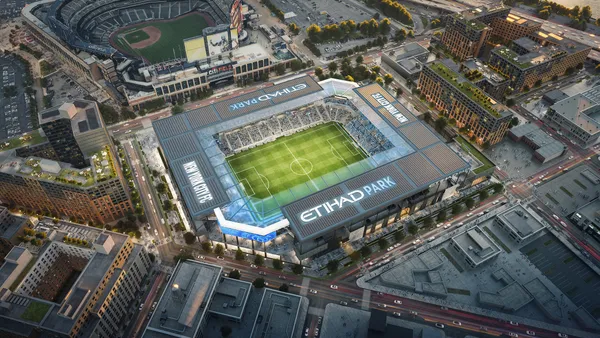Dive Brief:
- The Dodge Momentum Index fell 5.1% to 143.7 in January from a downwardly revised December reading of 151.5, according to Dodge Data & Analytics.
- January's dip was driven by a 7.8% drop in the commercial sector and a slight decrease of 0.9% in institutional activity. According to Dodge, 10 nonresidential projects valued at $100 million or more entered the planning stages in January, including a $200 million office building in Boston; a $152 million warehouse in Banning, California; a $440 million water park in Branson, Missouri; and a $123 million assisted living facility in Milwaukee.
- The January slip, Dodge noted, brought momentum back to a sustainable level after seeing an unusually strong quarter in Q4. Year over year, the Index increased 7.7% from January 2017, suggesting that 2018 should continue to see moderate gains in nonresidential construction.
Dive Insight:
Reports indicate that there are many in-progress projects with an assisted-living component in several states, much like the facility Dodge is tracking in Milwaukee. This trend is expected to continue as the baby boomer generation ages and the need grows for such facilities to accommodate that group.
Office construction also made a good showing in the month's report.
According to the latest American Institute of Architects consensus report, office construction activity should increase by 4.6% this year, though it will be overtaken by the industrial sector in 2019. Manhattan, especially, will see an increase in office construction, with Cushman & Wakefield reporting that the borough will add more than 12 million square feet of new office space to its stock during the next two years — the most of any two-year period since 1985 and 1986. During the next five years, Cushman & Wakefield said Manhattan would add a total of more than 22 million square feet of new office space.
The rise in office construction can be attributed partially to the thriving tech industry. In a separate Cushman & Wakefield study of 87 markets, the U.S. office leasing rate jumped 9.7% in Q4 2017. Metros that had the strongest tech company influence saw the lowest rates of vacancy, the report found.


